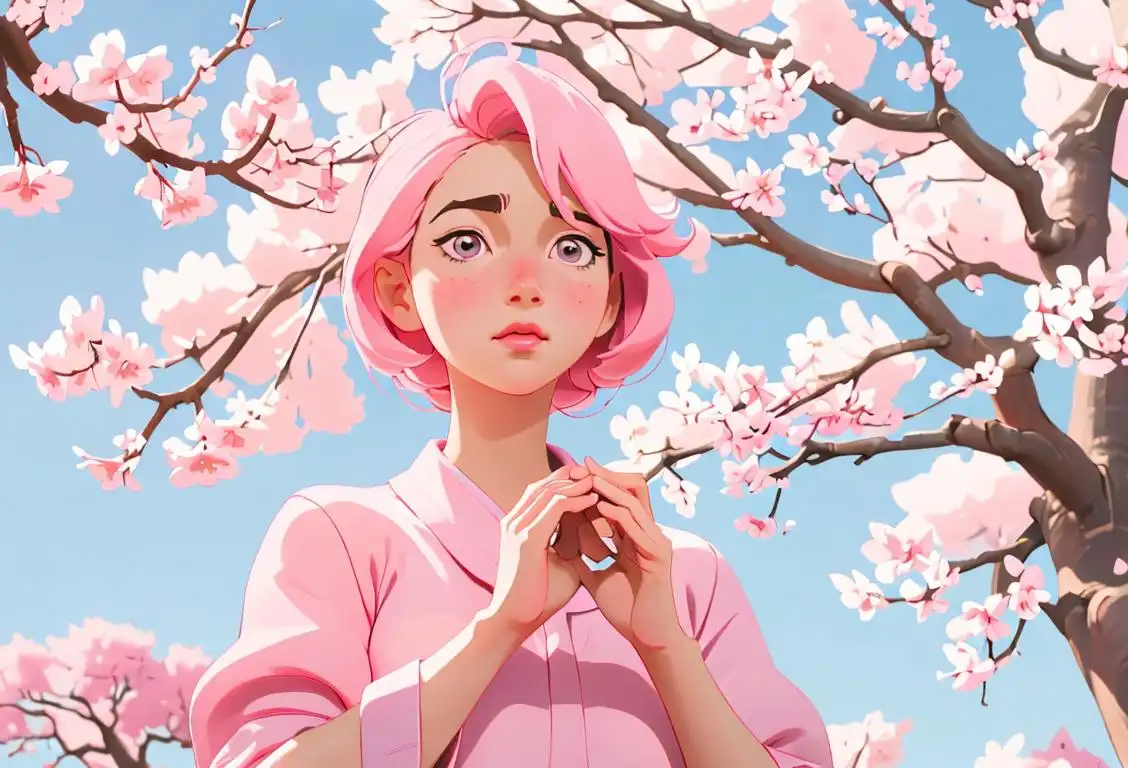National Waifu Day

Welcome, fellow internet adventurers, to the fabulous realm of National Waifu Day! Prepare to embark on a journey filled with love, imagination, and a healthy dose of pixelated infatuations. Whether you're an avid waifu enthusiast or just curious about this peculiar celebration, we've got you covered with all the delightful deets.
When is Waifu Day?
It's national waifu day on the 1st August.
The Enchanting Origins of National Waifu Day
Let's dive into the magical history of National Waifu Day, shall we? This delightful occasion emerged from the vast expanses of cyberspace, where fans of anime and video games found solace in their adoration for fictional characters. The term 'waifu' originated from Japanese Otaku culture, derived from the English word 'wife.' It refers to a fictional character, often from anime or manga, with whom fans form a strong emotional bond. While we shower our loved ones with affection on Valentine's Day, National Waifu Day allows us to celebrate our beloved anime and game characters who have captured our hearts in pixelated perfection.
How to Celebrate National Waifu Day
Now, now, my fellow waifu enthusiasts, it's time to unleash your creativity and show your devotion to your favorite pixelated paramour! Here are a few delightful ways you can celebrate National Waifu Day:
- Host a Cosplay Contest: Grab your finest anime-inspired attire and organize a friendly competition with your fellow waifu devotees. Time to unleash your inner fashionista!
- Create Fan Art: Let your imagination run wild and channel your artistic prowess into creating beautiful fan art dedicated to your beloved waifu. Share it on social media and spread the love!
- Binge-Watch Anime: Indulge in a cozy anime marathon with your waifu by your side (on screen, of course). Get lost in the captivating worlds of your favorite series and relish in the romance and action that unfolds.
- Write Love Letters: Give your waifu the romantic treatment by penning heartfelt love letters. Pour your emotions onto paper and express your adoration for the character who stole your heart.
A Wholesome Waifu Fun Fact
Did you know that some waifus have become so popular that they transcend their original anime or video game universes? These beloved characters often inspire fan-created merchandise like body pillows, figures, and even wedding rings. It's a testament to the enduring love and creativity of the waifu community!
History behind the term 'Waifu'
2002
Introduction of the term 'waifu'
The term 'waifu' originated in Japan around the year 2002. It is derived from the English word 'wife' but with the Japanese pronunciation ('wa-i-fu') added to it. In Japanese, 'waifu' refers to a fictional female character, usually from anime or manga, whom a person becomes emotionally attached to and may consider as their significant other.
2002
The Birth of 'Waifu'
In the year 2002, the term 'waifu' emerged from Japanese otaku culture. Derived from the English word 'wife,' 'waifu' is a Japanese transliteration of the word and is used to refer to a fictional character, usually from anime or manga, that a fan considers their ideal or dream spouse. The concept of 'waifu' represents a strong emotional connection and admiration for a particular character.
2004
Meme Status
Around 2004, 'waifu' started gaining popularity on internet forums and imageboard communities. It became a recurring topic of discussion and a popular Internet meme. Memes featuring characters labeled as 'waifus' became widespread, often emphasizing humorous or ironic aspects of the concept.
2004
Popularization of the term
During 2004, the term 'waifu' gained significant popularity among anime and manga fans in Japan. Online communities, such as image boards and forums, played a crucial role in spreading and popularizing the term. Fans began using 'waifu' to express their love and admiration for their favorite female characters, often creating artwork and dedicating fan pages to them.
2010
Mainstream Recognition
By the year 2010, the term 'waifu' had gained significant recognition and acceptance within popular culture. It became more widely used by anime and manga enthusiasts to express their deep affection and attachment to fictional characters. 'Waifu' became a common topic of conversation and an integral part of online fan communities.
2007
International adoption of 'waifu'
The concept of 'waifu' started to be adopted by anime and manga enthusiasts outside of Japan around 2007. Online communities and social media platforms allowed fans from different countries to connect and share their passion for Japanese pop culture. As a result, the term 'waifu' became more widely known and embraced among non-Japanese fans as well.
2014
Waifuism
In 2014, 'waifuism' started to gain attention as a subculture or community of individuals who take their love for their 'waifus' to the next level. 'Waifuism' is characterized by a deep emotional commitment to a fictional character, often involving rituals, dedication, and even marriage ceremonies with body pillows or figurines representing the chosen 'waifu.' However, it is important to note that 'waifuism' is not a widely practiced or representative aspect of 'waifu' culture.
2014
Mainstream recognition and inclusion in dictionaries
By 2014, the term 'waifu' had achieved mainstream recognition and was even included in some English-language dictionaries. It had become a well-known term both within and beyond anime and manga communities. The concept of having a 'waifu' also began to be referenced in various forms of media, including television shows, movies, and video games, further solidifying its place in popular culture.
Present
Continued influence and evolving meaning
In recent years, the term 'waifu' has continued to be widely used and has evolved to encompass a broader range of fictional characters beyond anime and manga. It has become a significant aspect of otaku culture, referring not only to female characters but sometimes also to male characters (known as 'husbando' in this context). The term 'waifu' has transcended its original Japanese origins and has become a globally recognized term for expressing deep admiration and emotional connection with fictional characters.
Did you know?
Did you know that some waifus have become so popular that they inspire fan-created merchandise like body pillows, figures, and even wedding rings?Tagged
romance fun loved onesFirst identified
1st August 2015Most mentioned on
1st August 2020Total mentions
206Other days
Love Your Red Hair Day
Do Something Nice Day
Suicide Prevention Month Day
Kissing Fried Chicken Day
Kiss A Ginger Day
Iloveyou Day
Compliment Day
Happiness Day
Tv On The Same Day
Boyf Day









